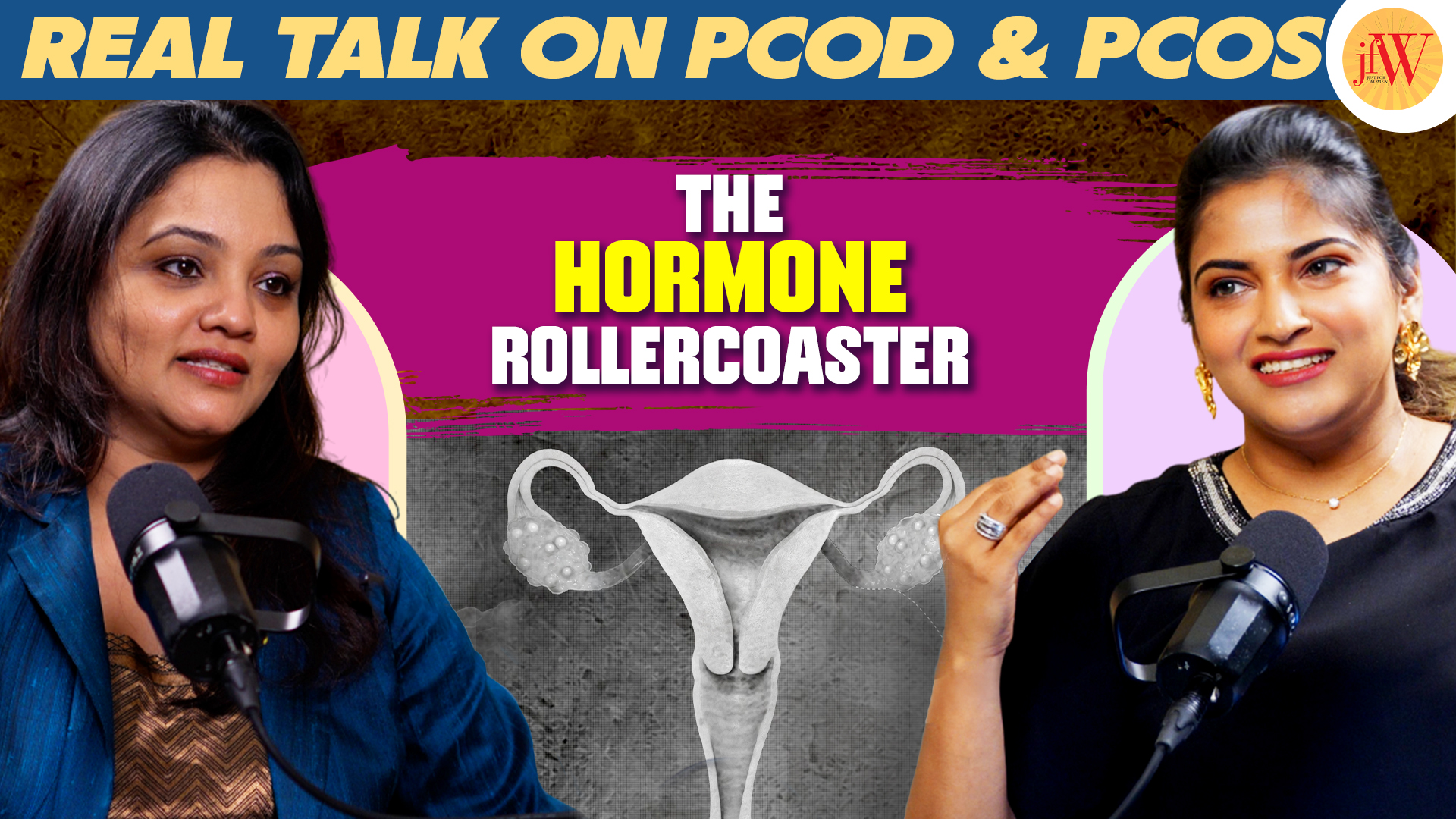In the latest episode of JFW’s health podcast series, host Shilpa Menon sat down with Dr. Meenakshi Sundaram, Consultant Obstetrician and Gynaecologist, Laparoscopic and Robotic Surgeon at Apollo Women’s Hospital, Chennai, to demystify two of the most common yet confusing terms — PCOD and PCOS — and their connection women’s overall health.
To book an appointment with Dr Meenakshi, scan the QR code.
The first topic to be discussed was the difference between PCOD and PCOS, two terms that are extremely commonly used today. How the Poly Cystic Ovarian disease progresses into a syndrome and what causes these hormonal imbalances are discussed in the podcast.
So what really causes these conditions? Is it in our genes, or is it our lifestyle habits? According to Dr. Meenakshi, it’s a mix of both. “There is a definite genetic predisposition, but lifestyle is the trigger. The kind of food we eat, how sedentary we’ve become, our stress levels, and our sleep patterns — all of it adds up.”
Naturally, myths and misconceptions follow any condition that becomes as common as this. One of the most persistent myths, Dr. Meenakshi says that PCOS automatically means infertility. In her experience, many women have conceived naturally in spite of their diagnosis of PCOS. It just requires major lifestyle regulation and there is a possibility that it takes longer.
Another common area of confusion comes from symptoms that overlap with other gynaecological conditions, particularly fibroids. Fibroids are benign growths that develop in or around the uterus. They’re very common in women of reproductive age and can cause symptoms like heavy periods, bloating, or pelvic discomfort.
The conversation also touched upon how fibroids affect fertility. Depending on their size and position, fibroids can interfere with conception or pregnancy, but not always.
When it comes to treatment, Dr. Meenakshi emphasizes that it’s not a one-size-fits-all approach. She recommends a change in lifestyle first and foremost which includes a nutritious diet, exercising regularly and managing stress and hygiene.

